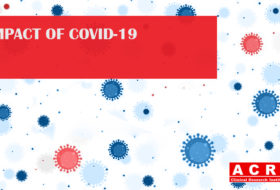Fermented foods are those that are made through controlled microbial growth and enzymatic conversions of food components. India has a variety of fermented foods consumed by almost everyone across the nation. The list includes the most common foods like yogurt, bread, wine, beer, idlis, dosas, dhoklas, and kadhi.
A limited number of controlled human trials have been carried out on fermented foods, but there is evidence of such foods providing immense health and nutritional benefits. Fermented foods increase the absorption of vital minerals from the gastrointestinal tract, which prevents mineral deficiencies. The consumption of fermented dairy foods is also associated with weight maintenance and reduced risk of cardiovascular diseases and diabetes.
However, not all fermented foods lead to similar health benefits. Depending upon the raw materials and microbes responsible for the fermentation, the growth of pathogens in the gut could be inhibited, digestion could be improved, or the level of vitamin absorption by the body could be increased. All in all, many fermented foods are associated with positive health effects. But, we still lack controlled clinical research to confirm this relationship.
This is why hundreds of experts across the country stressed on the need for more clinical trials on validation of health claims related to fermented foods, so that the credibility of these foods could be retained. Moreover, they also emphasized on incorporation of ethnic fermented food into academic programmes at Masters and PhD levels in food and dairy sciences. Furthermore, they also demanded more efforts to be put in to develop value-added probiotic dairy products for people living in high altitudes.
Dr. Rameshwar Singh, Vice-Chancellor at the Bihar Animal Science University in Patna, brought to notice that the present population of India is attracted more towards probiotic-based fermented dairy foods due to the various perceived health benefits of such bacterial cultures. However, he also brought attention to the fact that the dairy industry is highly dependent on the supply of such bacterial cultures from overseas-based companies. He thus, emphasized the need of developing original probiotic cultures within the country itself.
“Dahi” or yogurt has been one of the most popularly consumed fermented dairy products in India. In fact, 80% of the Indian fermented dairy products organized sector is being dominated by plain yogurt! This has been followed by cheese and buttermilk. This has brought in focus the requirement for making available more variants of yogurt for our Indian consumers. However, we all know that the low shelf-life of fermented dairy products is a big challenge. So, let’s see how our dairy industry and scientists accept this challenge and work towards it.
Aren’t all of this research and deductions simply amazing!? How do scientists and analysts research all of this and come up with such wonderful conclusions? It is all with the intelligence and expertise of clinical research. If all of this fascinates you, and you also want to join the league and become a great researcher to help your country discover new possibilities, you need to enroll with a professional clinical research course. Avigna Clinical Research Institute offers the most professional online clinical research courses in Bangalore, where you can learn from the best of professors, right from the comfort of your home, at your pace and time, without having to compromise on your current job and responsibilities.










